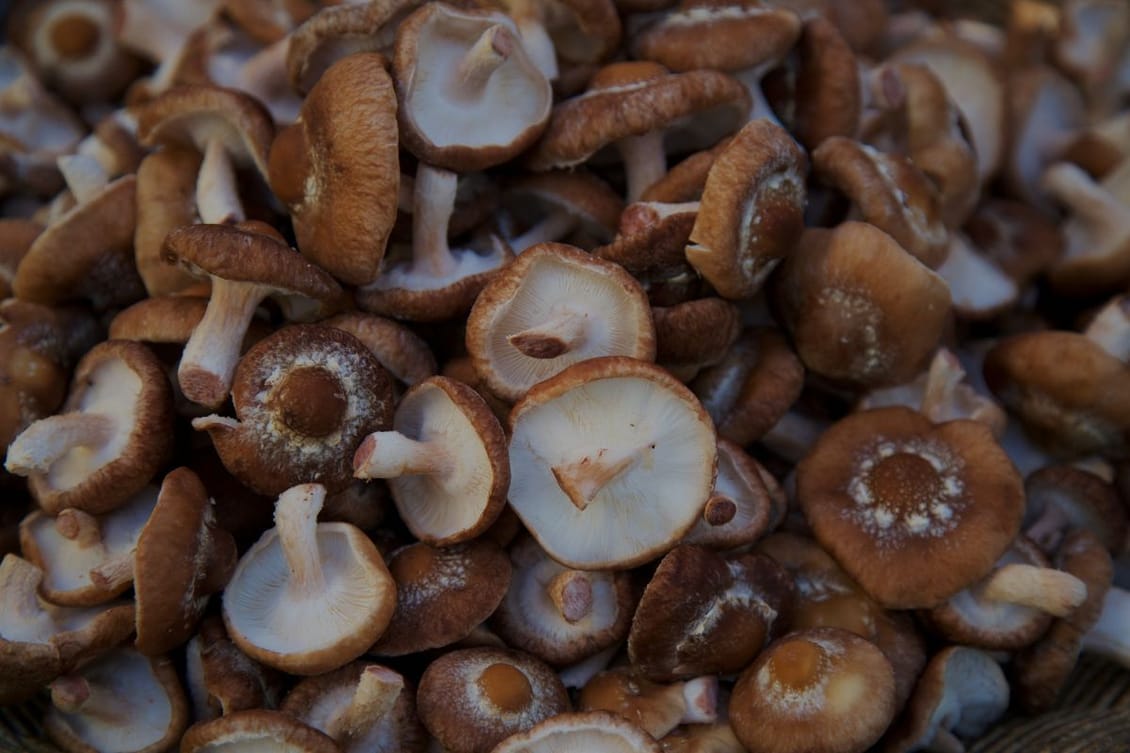
A big welcome to the 29 new foodies who have joined us this week — you’ve got good taste.
If you too have good taste then subscribe to The Sauce — InFlavour's content & insights community, run by global experts. Sink your teeth into stories about food, worth sharing, and receive insights, ideas, opinions, trends, and strategies straight to your inbox.
Keep up with our weekly newsletters on LinkedIn by subscribing here.
Nootropics is an emerging segment in F&B. It’s populated with food products containing ingredients that can enhance our cognitive function – and the demand for nootropics is driving a flurry of new research studies that investigate the true impact of products that make cognitive claims.
Mushrooms are at the heart of the nootropics category. We’re seeing a boom in brands that offer mushroom-based products with marketing campaigns centred around their potential to make our brains work better.
And while this is exciting, it’s certainly not a new idea: humans have a long history of using mushrooms to influence the brain.
Some scientists believe that our brains wouldn’t be the way they are today without mushrooms.
The theory was first put forward by ethnobotanist Terence McKenna, in his 1992 book Food of the Gods. Essentially, he suggested that eating certain fungi that had a psychotropic effect might have played a pivotal role in the development of the modern human brain, and the culture that also grew as a result.
He argued that the development of language and conscious self-reflection could be attributed to the mushrooms that our ancient ancestors ate around two million years ago.
More recently, scientist Dr. Thomas Falk suggested that McKenna’s hypothesis also explains why humanity went through a ‘creative explosion’ about 40,000 years ago. There seemed to be a leap in humans’ cognitive ability at that time – and it might have been linked to mushroom consumption. But that’s only one of many possible causes – we don’t really know.
McKenna’s work has been criticised for being highly speculative, and not based on solid evidence. But it’s an interesting starting point for looking at our relationship with mushrooms (and nootropics in general) today.
Mushroom markets are doing well – and specifically, mushroom-based products that promise cognitive enhancement.
In numbers:
In short: people are spending a lot of money on mushrooms.
Yes, it’s a trend – but it’s rooted in real knowledge. A growing body of evidence shows that mushrooms really do make a difference to our brains.
A recent study by Applied Food Sciences (AFS), for example, looked at the effects of a functional fungus called lion’s mane (hericium erinaceus).
Lion’s mane has a nootropic effect because of its ability to simulate Nerve Growth Factor (NGF) synthesis, which supports human cell growth and has a protective effect on the nervous system. The study, published in the peer-reviewed journal Nutrients, focused on the acute cognitive benefits of the fungus in healthy adults.
It found that in a very short space of time, lion’s mane improved:
And this is just one of many studies showing that mushrooms really do change the way our brains work – both in the short-term, and over longer periods of time.
If we could boil the continued growth of the nootropics category down to one driver, it’d be this:
Consumers who are increasingly informed about the effects that ingredients have on their overall health, and who have more access to food research than ever before.
More and more people know that the ingredients they consume influence their state of wellness – including their state of mind. And they know where to find up-to-date information about the products that will improve their lives.
That, combined with marketing campaigns that highlight nootropic effects, means that this segment is poised for continued growth. Consumers are interested in the micronutrients they put in their bodies – and mushrooms are rich in nutritional value and functional properties, with results that consumers can see (or feel) very quickly.
Are you in the nootropics market? We’d love to hear from you.
Join us at InFlavour 2024 to get ahead of the curve with the latest market segment developments in F&B. We can’t wait to see you there.
Take your seat at the InFlavour table, a government-backed and world-leading B2B food event by Tahaluf.
E-mail address SubmitWant to keep up to date with all our latest news and information? Enter your name below to be added to our mailing list.
E-mail address Submit